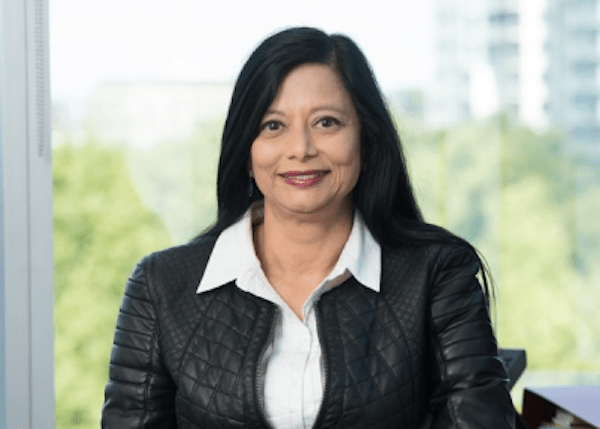How did something that 51% of the population have or will experience become a “secret world”?
That’s what researcher and business owner Katie Harris felt she had entered, after experiencing her first hot flush last year and realising she didn’t actually know all that much about this inevitable life stage.
In our latest instalment of the Women’s Health Project, we’re talking about Menopause. And of course, menopause is not a secret world. It’s actually THE world.
But for some reason, it’s not so frequently discussed.
During this latest episode, we ask why. With the goal of playing a part in seeing menopause become a louder and more significant national conversation, so that those experiencing menopause can get the support they need from their families and friends, their employers, and the wider community.
Because while this is an area of women’s health that doesn’t necessarily lack treatment options, it can lack sensitivity. Sensitivity that sees women again feeling sidelined, dismissed and ignored.
Women aged 45 to 49 years had the highest age-specific suicide rate and accounted for the highest proportion of female suicides in 2020, according to ABS Causes of Death Data from 2020. There is no single reason for this and we certainly can’t dismiss the loads women disproportionately take on, particularly around caring responsibilities, that can accumulate around this time and lead many to be more vulnerable.
But as Professor Jayashri Kulkarni (pictured above) says, we also can’t dismiss perimenopausal depression that impacts some women in this age group, a form of depression that she’s spent years investigating and researching.
The founder of the Monash Alfred Psychiatry research centre, Professor Kulkarni wants women to know that help is available.
“Somehow we’ve managed to overlook these dreadful statistics,” she says.
“If we had a focus on women’s mental health, these sorts of things wouldn’t go under the radar and we’d be able to provide meaningful, tailored treatment for menopausal women to improve outcomes and to prevent some of these terrible stories.”
Professor Kulkarni highlights how the average age of menopause is 51, but women can experience symptoms in the years leading up to that point. “51 is the end of menopause, it begins in the brain around the age of 42 and 43.
“Everyone focuses on the hot flushers. But that’s not the thing that disturbs the quality of life as much as the mental stage.”
A couple of studies have raised national attention of menopause: with Circle In and the Victorian Women’s Trust sharing research this year finding that almost half of women experiencing menopause consider retiring or taking a break from work, and 76% call for better employer support. As Mary Crooks AO said on the findings: it’s research like this that confirms we’ve reached a “special moment in time” because when we lift the lid on menstruation generally, including menopause, we change both our private and public worlds for the better.
Katie Harris is aiming to do just that. Having experienced her first hot flush while in lockdown in 2020, she says she entered a “secret world” and was surprised to have been taken off guard by menopause.
As the co founder of Zebra Research, she set about researching the issue, conducting a series of interviews with a diverse range of women to learn more about what they had or were experiencing, particularly regarding their work. “I also realized the huge lack of information out there and understanding about menopause. And on the back of that, a whole lot of misinformation.
“I saw this as a public health failure and took it upon myself to go on a mission because all women go through menopause, right? All women, half the population go through menopause. 80% of them will have symptoms. 60% will have mild to moderate symptoms.”
Harris has since gone on to create dedicated resources for workplaces looking to understand how their staff experience menopause and what can be done to support them. She knows that women’s workforce participation levels will struggle to improve if we don’t better support those experiencing menopause, especially with shifting demographic patterns seeing so many women looking to accelerate their careers in their 40s and 50s.
Some workplaces are already responding in more sophisticated ways, including by offering “menopause leave”, as Future Super recently announced in Australia, and as Kellogg’s announced internationally.
Meanwhile, Sydney-based GP Dr Julia Menzies believes there are significant gaps in the understanding of menopause among doctors, as well as lingering concerns regarding treatment options that may see women feeling dismissed when they do approach a GP with their symptoms or concerns.
“People would come to me being quite desperate, and I realized that there was a really huge need out there for more doctors to be informed and trained in how to help women through menopause,” she says.
Dr Menzies wants people to put menopause on their agenda, and to know that there is help available – if they’re not getting anywhere with the first GP or health practitioner they speak to, to do some research and find others that have a better understanding.
We explore all the above and more in the latest episode of the Women’s Health Project.
The special podcast series is created independently by Women’s Agenda and supported by Organon, the recently launched pharmaceutical company dedicated to a better and healthier every day for every woman.
If you or someone you know has mental health concerns, you can call Lifeline on 13 11 14, or Beyond Blue on 1300 22 4636.
You can subscribe to the Women’s Health Project via iTunes or Spotify, where you’ll also find recent episodes.


